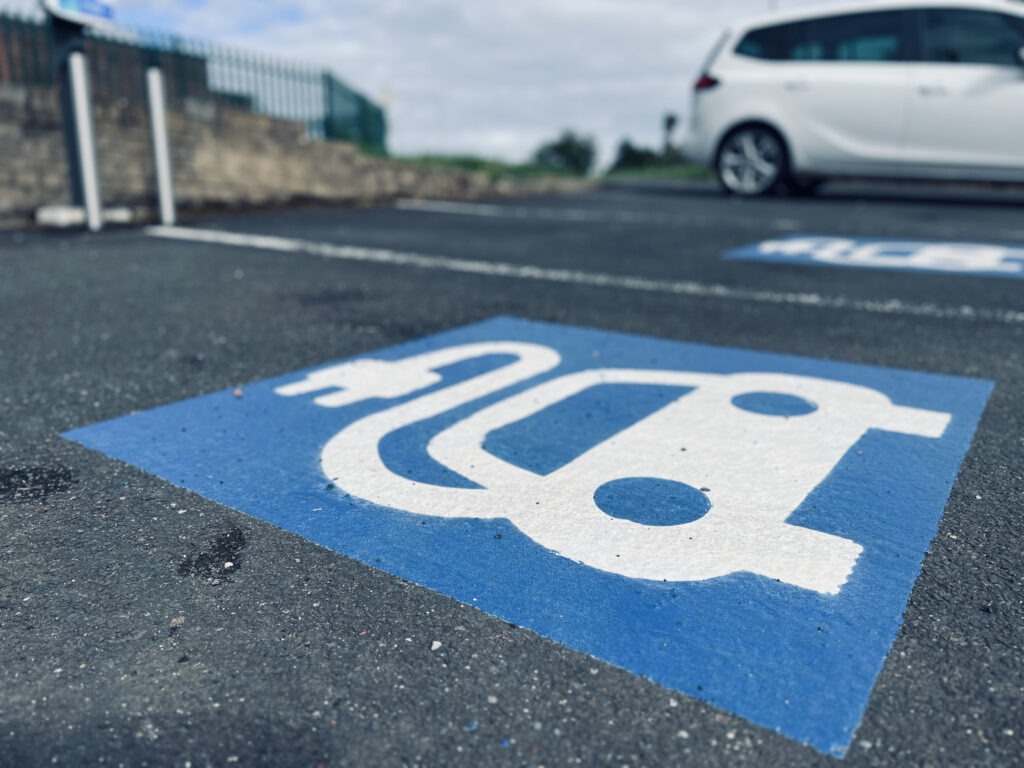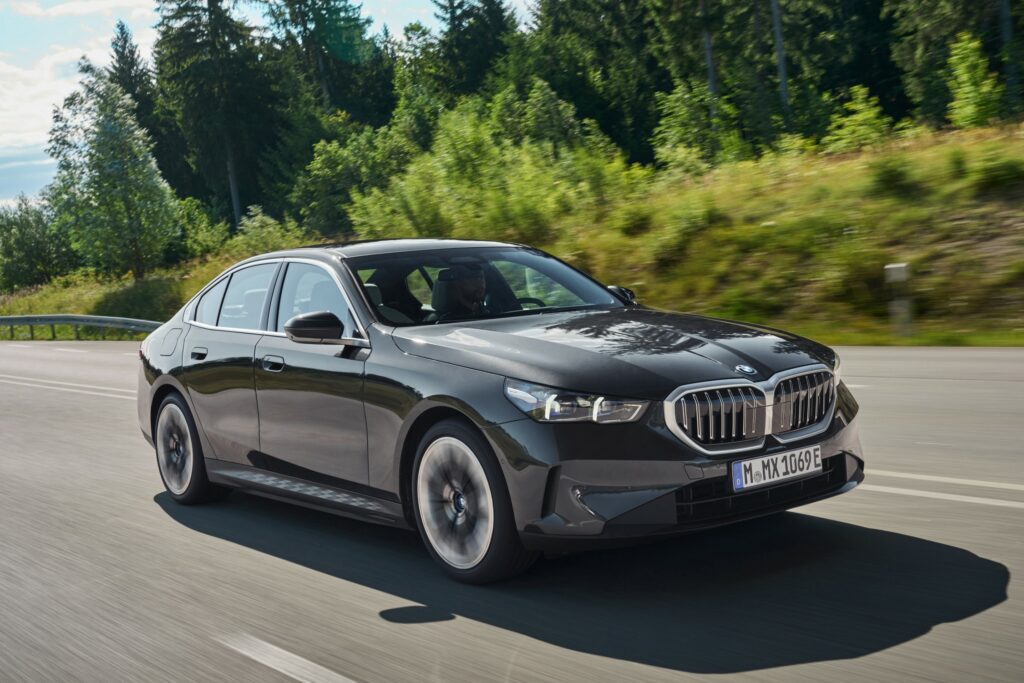BEVs bounce back as UK new-car market starts 2024 positively
05 February 2024

January was another positive month for UK new-car registrations, as battery-electric vehicles (BEVs) posted their first rise since October 2023. Autovista24 special content editor Phil Curry explains the numbers.
The latest figures from the Society of Motor Manufacturers and Traders (SMMT) show that 142,876 new cars took to UK roads in January, an increase of 8.2% on the previous year. While the development is positive, the data continues a trend of slowing improvements.
January marks the third successive month of single-digit growth for the UK new-car market. Since year-on-year delivery growth peaked at 28.3% in July 2023, the level of improvements has fallen each month. Yet while the recovery from recent challenges may be slowing, the market has now recorded 18 consecutive months of growth.
Numbers were driven by the fleet market, which grew by 29.9% in January. Private deliveries were down 15.8%, while business totals, which make up a small percentage of the market, dropped 17.7%.
Why have BEVs bounced?
The poor performance of BEVs in November and December was a bit of a talking point, as the powertrain recorded year-on-year losses. However, January’s figures revealed that carmakers were likely holding back models to deliver in the first month of 2024.
Last month, 20,935 BEVs were registered in the UK, an increase of 21%, giving them a 14.7% market share, up from 13.1% in the same month last year. January also saw BEV registrations surpassing one million units, with the overall total standing at 1,001,677 units since deliveries began in 2002.
The growth is a rebound for the technology, which has struggled since November 2023. While not a complete turnaround, the improvement in January suggests there was more at play than wilting demand.
In the last three months, BEV deliveries diminished by 17.8% year on year. This equates to 15,819 fewer registrations between November and January compared with the same three-month period a year earlier.
The SMMT highlighted volatility in BEV supply as a reason for the recent market weakness. This is likely to continue as manufacturers adjust product allocation following the last-minute Rules of Origin (RoO) resolution. RoO threatened to apply tariffs to UK new-car imports from 1 January 2024, which would have hit BEVs particularly.
Manufacturers with EU factories would have been expected to prioritise continental customers towards the end of 2023. This would have provided some breathing room as they waited to see if the RoO deadline would be extended.
The threat of 10% import tariffs has now been delayed until the end of 2027. However, it will take time for carmakers to pick up production for the UK market, which requires right-hand drive specifications.
Brands are also likely to have held back deliveries of BEVs in December, with plans to hold units until early 2024. This would ensure these totals would count towards their ZEV mandate targets.
From 1 January, carmakers will need to meet specific yearly goals for zero-emission vehicles (ZEVs). A total of 22% of sales in 2024 will need to meet this requirement.
With several vehicle manufacturers holding a limited range of BEVs in their line-up, this objective could prove challenging. To reduce the need for credits, which could impact numbers in the coming years, delaying deliveries into the first reporting period would help boost full-year figures.
Forecast slows for BEVs
However, with disruption expected to continue in the early months of 2024, the SMMT has reduced its forecast of the BEV-market share down to 21% for the year. This means 100,000 more BEVs will hit UK roads in 2024, with a total of 414,000 units expected, equating to more than one in five new cars.
Fleets and businesses once again led the way in BEV registrations, with a 41.7% increase in January, while private demand dropped by 25.1%. With the country’s upcoming budget statement, the SMMT is calling for support to ensure private buyers can afford the powertrain, to improve the country’s drive to net-zero.
‘It has taken just over 20 years to reach our million EV milestone, but with the right policies, we can double down on that success in just another two years,’ commented SMMT chief executive, Mike Hawes.
‘Market growth is currently dependent on businesses and fleets. The government must therefore use the upcoming budget to support private EV buyers, temporarily halving VAT to cut carbon, drive economic growth and help everyone make the switch. Manufacturers have been asked to supply the vehicles, we now ask the government to help consumers buy the vehicles on which net zero depends,’ he added.
The SMMT highlighted that the UK is the only major automotive market to combine a 2035 ban on the sale of any new non-ZEVs, with a mandated ZEV market share. However, to achieve this aim, the industry body believes the market needs help from the government.
According to the SMMT, temporarily halving VAT on new BEV purchases would cost the treasury an average of £1,125 (€1,318) per car, which is less than the cost of the previous Plug-in Car Grant. The body claims that this would put more than a quarter of a million electric cars on the road by the end of 2026, on top of those already anticipated.
Yet with other European countries amending or completely ending their incentive schemes in 2024, the UK government may wait to see what happens in these regions before deciding how to boost BEV uptake.
Petrol dominance remains stable
The SMMT has changed the way it reports registration figures in 2024. Mild hybrids are no longer separated and are instead included within the petrol and diesel vehicle categories, dependent on their primary fuel.
In the first month of 2024, petrol-powered cars increased registrations by 7.5%, with 81,905 units. This gave the powertrain a 57.3% market share, a drop of just 0.4 percentage points compared to the same period in 2023.
Plug-in hybrids (PHEVs) also had a strong month, with 11,944 registrations equating to a 31.1% rise, and an 8.4% market share, up from 6.9% in January 2023. Together with BEVs, plug-in vehicles took a 23.1% share of UK registration figures in January, up from 20% a year earlier.
This growth has come at the expense of both diesel and full-hybrid (HEV) models. Diesel’s decline continued, with just 9,348 units registered in January, a 10.1% fall which left the powertrain with a 6.5% market share.
January 2024 is the first month since August 2022 that HEVs failed to record a growth in registrations. A 1.2% drop in the first month of the year left the technology with a 13.1% share of January’s total, down from 14.4% in the same period in 2023.
The SMMT is forecasting that registrations will reach 1.974 million units in 2024, which would mean a year-on-year increase of 3.7%. This is in line with the latest forecast from EV-volumes.com (part of Autovista Group), which sees the UK market improving by 3.8% in 2024 and 4.3% in 2025. This would mean over two million registrations for the first time since the pre-COVID-19 pandemic levels of 2019.



